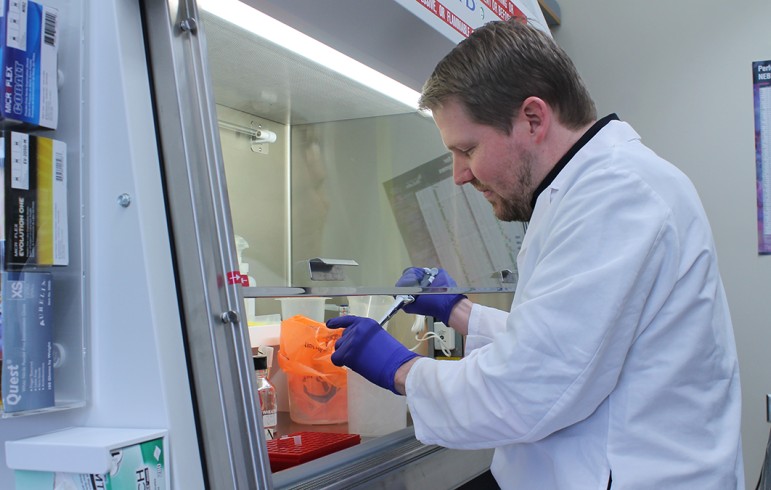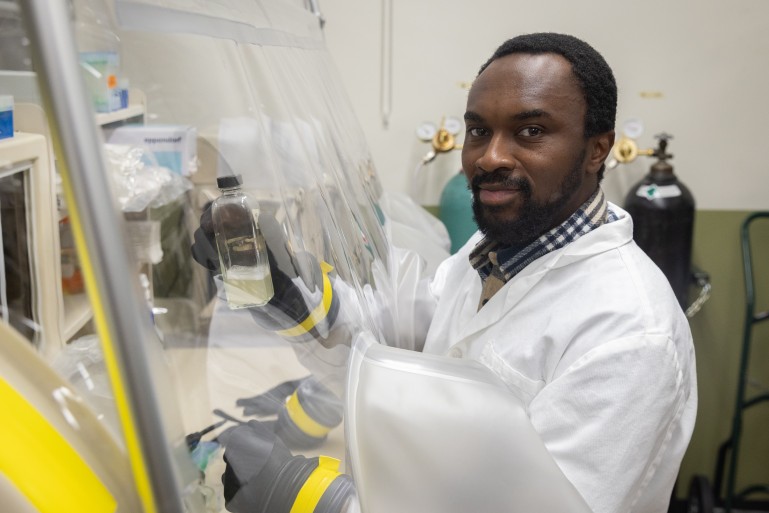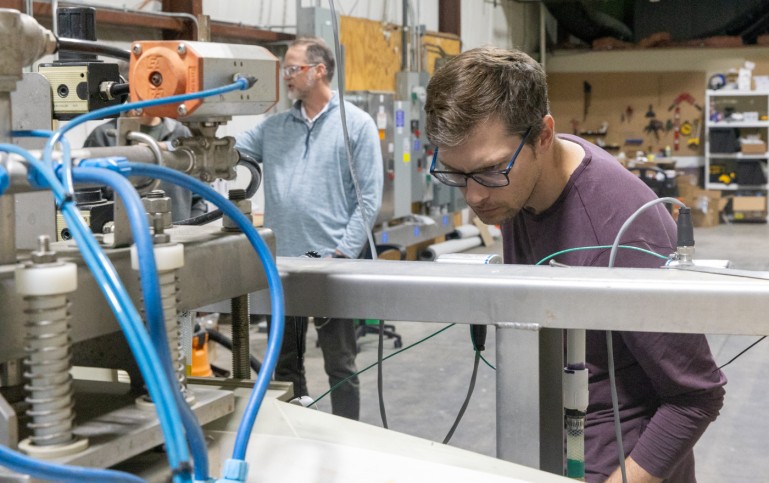Building on previous work evaluating stepwise processing, scientists with the Great Lakes Bioenergy Research Center sought to improve the results with a biorefinery design that combines the first two steps, separating lignin from sugars and breaking into useable pieces with the help of a metal catalyst.
University of Wisconsin–Madison scientists have developed a new method for efficiently pinpointing genes that help microbes resist toxic chemicals, which could enable innovations in biotechnology, medicine, and agriculture.
Wisconsin Energy Institute investigator Dan Ludois has been named a fellow of the National Academy of Inventors.
A team of researchers including one current and one former Wisconsin Energy Institute affiliates has been honored for their efforts to engineer soybeans that produce an eco-friendly dye and a brain-boosting compound.
If you closed your eyes — and maybe if David Bartling wasn’t trying to shout over the roar of harvesting machinery — you might guess he was talking about his software business or a chemistry lab. Not the weather on the farm.
Efforts to produce sustainable fuels and chemicals from non-food plants focus on lignin, a part of the cell wall that binds together sugars and gives plants structure. Lignin contains ring-shaped molecules known as aromatics that some microbes can convert into chemicals used to make plastics and other products. But breaking this complex matrix — or polymer — into smaller, useful units is challenging.
Brian Fox, Chair of the Biochemistry Department at UW–Madison, has received a fellowship from the Stellenbosch Institute for Advanced Study. His six-month residency will begin July 2026.



